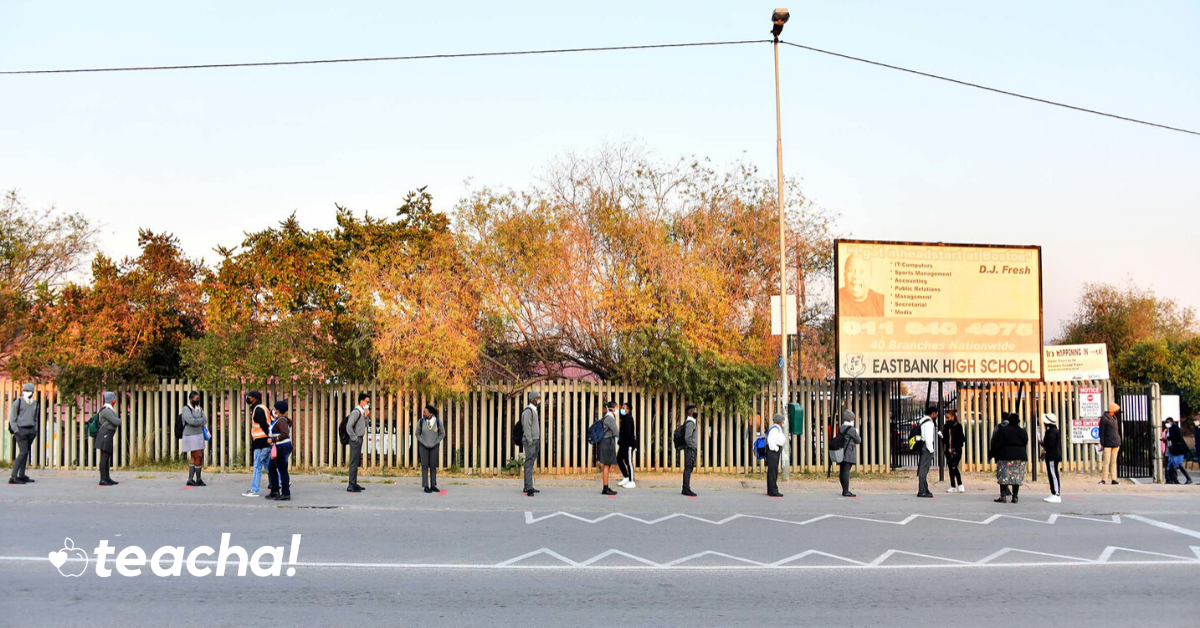Monday, July 6, 2020
Schools across the country will today welcome back Grades R, 6 and 11 learners to school.
“The Council of Education Ministers (CEM) noted that provinces may be at different levels of readiness for the return of Grade R learners. Therefore, the CEM agreed that those provinces that are not ready to receive Grade R on 6 July 2020, must provide strategic and realisable plans for ensuring the reincorporation of Grade R learners to schools within, but not later than the end of July 2020,” Minister of Basic Education, Angie Motshekga, said.
She said provinces that are ready to receive Grade R learners on Monday can proceed to receive the learners.
The Minister was addressing a media briefing on Sunday following the CEM meeting last week, where several reports, including the Monitoring and Evaluation Report compiled by the independent verification consortium, were considered.
“What is critically important is that all Grade R and pre-Grade R learners, who have already returned to school, must remain in school. Schools that meet the health, safety and social distancing protocols can reopen for their Grade R and pre-Grade R learners,” Motshekga said.
The Department of Basic Education will continue to work with the national associations responsible for learners with special needs to streamline the return of these learners to school.
“A further agreement by CEM is that all Grades that are part of the second cohort should return to school in an orderly, staggered fashion within, but later than the end of July 2020,” the Minister said.
She said a number of overall patterns continue to emerge from the monitoring and evaluation process carried out by the department.
“Across most thematic areas in the tool, there were relatively high levels of readiness on average, with the lower levels recorded for psychosocial support, school nutrition, and personnel provisioning, as well as the highest levels of readiness recorded for facilities, water and sanitation, and compliance with COVID-19 protocols,” the Minister said.
The Director-General for the Department of Basic Education will continue to convene one-on-one meetings with the Heads of the Provincial Education Departments to ensure that there is continuous sharing of experiences and working together.
“We unfortunately lost the lives of 11 teachers and four non-teaching staff in the Eastern Cape to the virus; as well as three learners, who are reported to have succumbed to COVID-19.
“The reports show that some of these teachers and learners could not have the opportunity of reporting back to school on school reopening. We convey our deepest condolences to the affected families,” the Minister said.
Since the return of the Grade 7 and 12 learners on 8 June, 968 of the 25 762 schools, were closed and reopened.
This is almost 4% of the total number of public and independent schools in the country.
“Again, since the return of the Grade 7 and 12 learners, 2 740 teachers, of the total number of 440 000 teachers, were infected by the virus. This is equivalent to less than 1% of the entire teacher population in our country.
“In the same period, 1 260 learners were infected by the virus. This implies that 0.01% of our learners, were infected by the virus,” the Minister said.
Differentiated timetables and trimming of the curriculum
The department has noted that many schools may have spacing challenges when more grades return to school.
“Almost all schools are going to have to adopt innovative approaches with respect to timetabling and classroom management, in order to ensure that all children can return to school, while at the same time, maintaining the necessary social distancing measures.
“Options such as platooning, rotating different grades coming to school on particular days of the week, and other innovative approaches based on the different contexts, will need to be considered. Most provinces are inclined to favour the rotational option, rather than the platoon option,” the Minister said.
As a result of the loss of schools days this year, revised Annual Teaching Plans (ATPs) have been developed and adapted by provinces, and have been communicated to schools and teachers.
“In some cases, innovative approaches are being used, like training teachers using Microsoft Teams and other virtual approaches. It is of critical importance that young people are kept constructively occupied, engaged and connected through schooling,” the Minister said.
Vandalism of schools
Almost all provinces are currently doing repairs as 1 718 schools were vandalised during the national lockdown.
“In Gauteng alone, 351 schools have been affected by vandalism, and six were vandalised just this week. These are burglaries taking place in schools previously targeted. In the North West, a school was torched this week, resulting in three classrooms being damaged. The province reports that burning tyres were used to set the school on fire,” the Minister said. – SAnews.gov.za



